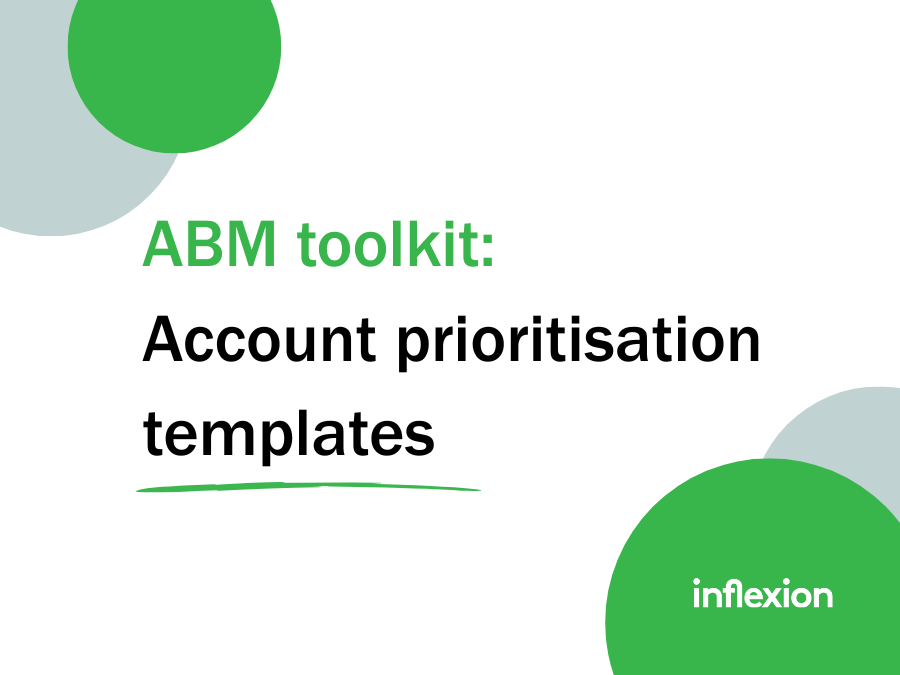When we ran our workshop “Beyond the buzzwords – how to use generative AI ethically throughout the ABM process” at last year’s Global ABM Conference, the room hummed with a mix of excitement and unease. Generative AI had arrived – full of promise, a little scary, and also proving unwieldy and painfully slow to integrate within risk-aware corporate environments.
Fast-forward twelve months, and we’re in a different place. At this year’s event, we shared findings from a new round of research into how AI is actually being applied in ABM programmes – and crucially, what’s still getting in the way. The mood this time round? Purposeful curiosity. Less “what can it do?” and more “what will it take to do this well?”
From insight to action
After reporting out on the insights from last year’s Global ABM Conference, we were approached by members of our ABM Leadership Forum with a new challenge: to revisit the topic of AI in ABM – not to explore hypothetical use cases, but to understand how AI is actively reshaping programmes in practice. That request set the direction for our 2025 AI in ABM Benchmarking Study, with a sharp focus on adoption, barriers, and the evolving role of AI in delivering scalable, ethical, and effective account-based marketing.
The results reflect a field still in the early stages of experimentation – but more grounded, more focused, and (cautiously) more optimistic. Differently put: it’s present, visible, and useful… in pockets.

Where are we now?
Here’s a summary of what we found:
- AI adoption is still in its infancy, with activity concentrated in a few key workflows like insight generation, persona analysis, and content support.
- Early benefits are modest and productivity-related, especially where there’s no defined ROI framework.
- AI is helping ABM teams play a more strategic role, but it’s not yet embedded in end-to-end execution.
- The biggest opportunity? Hyper-personalisation at scale – though that remains firmly on the horizon.
Most plan to invest more in AI over the coming year, leveraging agents selectively and carefully. But today’s reality is targeted experimentation, not systemic transformation.
The three interlocking barriers
What’s holding teams back from scaling AI across their ABM programmes? Our research identified three persistent and overlapping blockers to broader adoption. Importantly, these don’t resolve sequentially. They must be addressed in parallel.

Barrier 1: Data foundations
Data is the engine AI needs – and the weakest link in many ABM programmes.
76% of respondents cited data quality and reliability as a challenge. Add to that 69% facing integration complexity and 66% struggling to define success metrics, and it’s clear: without robust, accessible data, AI simply scales the noise.¹
Barrier 2: Balancing automation with personalisation
Trust is the currency of ABM, and it doesn’t survive bad automation.
AI brings speed – but ABM demands relevance. 68% of participants reported difficulty building trust in AI-generated outputs. Over half said they struggle to engage authentically at scale.¹ That’s not just a tech problem – it’s a signal that the balance between automation and human insight is still off. Without clear parameters and human oversight, the risk isn’t just inefficiency. It’s erosion of the very relationships ABM is meant to deepen.
Barrier 3: Skills and capability gaps
AI is not a shortcut – it’s a multiplier of judgement
81% of respondents cited skill gaps as a blocker.¹ Not surprisingly, many teams are piloting cautiously or outsourcing initial use cases. But here’s the deeper insight: AI doesn’t replace expertise – it scales it.
This means the people best positioned to benefit from AI are already domain experts. In ABM, that means marketers who understand account ambition and challenges, sales dynamics, and customer context. AI can speed their insight generation, sharpen their personalisation, and free up strategic time – but it can’t invent judgement where it doesn’t exist. And it is this human judgement that was overwhelmingly cited as a key ingredient for successful AI implementation.
What’s working? The role of executive sponsorship
The research also gave us a window into what helps organisations move forward.
- 43% say executive sponsorship is key to overcoming AI adoption challenges.
- Followed by regular communication (36%), phased rollouts (33%), and training (29%)¹.
- Perhaps most tellingly, the winning formula wasn’t silver bullets — it was clarity of purpose, paired with test-and-learn rigour.
“Get executive buy-in, scope out the outcomes and have metrics identified for showing success.”
“Think big, start small, move fast.”
The real takeaway: Maturity looks like purposeful curiosity
There’s a temptation in emerging tech to overclaim. But what we’re seeing – and celebrating – is something more grounded. AI in ABM is moving from marketing decks to operating practices. That doesn’t mean it’s everywhere. It means that teams are asking sharper questions, designing smarter pilots, and navigating governance with their eyes open. This was also apparent in the comments during our workshop, where participants sought to address systemic challenges over symptomatic ones.
If there’s one message we want to land, it’s this: scaled ABM might finally be within reach. Not because AI solves everything, but because it’s prompting – forcing even – the kind of operational clarity that scale requires.
As vendors evolve their offerings to better align with trust-based buying journeys, and as ABM-ers build their own AI fluency, we’re seeing the conditions emerge for real change.
Not revolution. Evolution, with purpose.
What’s next in the series
In the coming weeks, my colleague, Megan Heuer and I will unpack key findings in detail – from foundational adoption, to implementation models, to the (still underwhelming) ROI story.
Next week, Megan will share what the data tells us about how to lay the right foundations for GenAI adoption in ABM.
If you’re exploring how to start – or restart – your own AI-in-ABM journey, stay tuned. And if you’d like to talk about the realities (not the hype) of making this work in your organisation, I’d love to hear from you.
Footnote
¹ AI in ABM Benchmarking Study 2025, Inflexion Group with B2B Marketing




